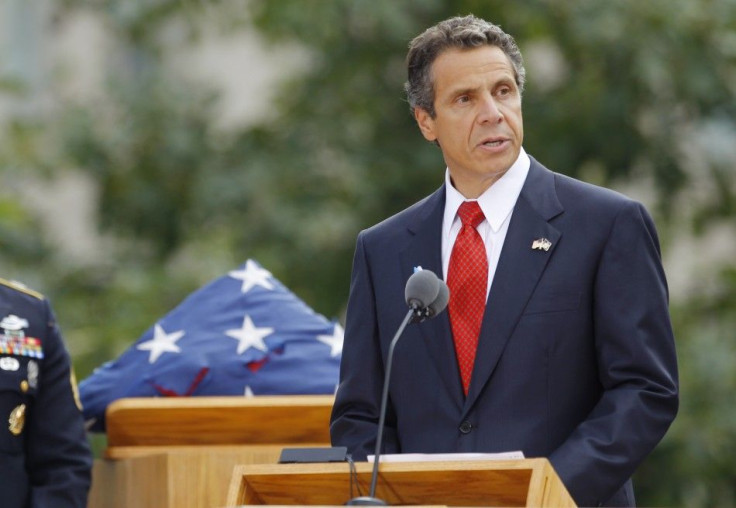Super Committee Fails to Make Deal: Severe Impacts on New York

New York is expected to lose $5 billion in federal funding now that the U.S. Congress's deficit-reduction super committee has announced that it failed to reach a compromise, as its leaders announced it had Monday night.
After months of hard work and intense deliberations, we have come to the conclusion today that it will not be possible to make any bipartisan agreement available to the public before the committee's deadline, the super committee's co-chairs, Representative Jeb Hensarling and Senator Patty Murray, said Monday evening.
Governor Andrew Cuomo and Mayor Michael Bloomberg ramped up their criticisms of Washington gridlock as it grew increasingly likely that a stalemate would soon be announced.
If the committee fails to reach an agreement and Congress moves forward with its so-called 'sequestered cuts,' the Budget Division estimates that New York could lose approximately $5 billion in federal funding over 10 years beginning this coming fiscal year, Cuomo said in a Monday statement in which he bashed Congress for likely failing to reach a deal. This does not account for additional revenue losses from jobs losses and Wall Street declines.
Cuomo held an emergency meeting on the budget with key advisors Monday as the state braced for the severe job losses and billions of dollars in lost schools and health aid expected from a failure on the super committee's part. A Cuomo administration source told the Associated Press Monday up to 155,000 state and local government jobs could be lost as a result of the stalemate.
The actions of the committee, whether or not the members reach a consensus, will have a direct and significant impact on the finances and economy of the state of New York, Cuomo wrote in a Friday letter to the state's congressional delegation. I write to express my strong concern regarding the possible impacts of either a stalemate, which would trigger across the board cuts to federal programs, or any agreement that targets programs that New Yorkers and state government depend on.
Now that the super committee has failed to reach a deal to eliminate $1.2 trillion from the federal deficit over the coming decade, broad cuts to defense and social programs are slated to go into effect automatically next fiscal year.
Those cuts would severely impact New York's state budget, 30 percent of which -- or $40 billion -- is funded by the federal government. Cuomo said in his Monday statement that he was already planning for the worst.
I have asked my Council of Economic and Fiscal Advisors to work with senior members of my administration to draw up an expedited job creation and fiscal stabilization plan, he said. This proposal would be based on the reality that the best way to generate revenue for the state and revitalize our economy is to create jobs.
New York Mayor Michael Bloomberg spoke out Monday on Staten Island in advance of the super committee's failed attempt at finding consensus, blaming its members and partisan politics for not figuring out a way to avoid the dramatic cuts.
Markets are coming apart. People have lost their jobs. They can't find work. And in three-and-a-half weeks [super committee members] couldn't even bother to sit down together, Bloomberg said, according to 1010 WINS radio. I don't know how you'd reach an agreement if you don't sit down at the table and talk to each other.
He also said he holds President Barack Obama partially responsible, as he failed to lead the super committee members to a compromise.
It's the chief executive's job to bring people together and to provide leadership in difficult situations, and I don't see that happening, Bloomberg said, according to 1010 WINS.
State Senator Stavisky, the ranking Democrat on the senate's Higher Education Committee, told the IBTimes Monday she advocates overhauling the tax code to make it more progressive.
We can't just keep cutting programs. There has to be a more equitable, better balance in the tax structure. We need to reform taxes, period. Too much falls on the middle class, she said. We need a progressive tax [code] where people who are making six and seven figures should be paying more on a percentage basis than those who are in the middle class and struggling.
The 12-member super committee spent two months looking into ways to slash the deficit, but it could not reach a deal by its Monday deadline.
The nearly $40 billion of federal funding the state of New York receives each year supports more than 670,000 jobs and $32 billion in wages for workers throughout the state, according to Cuomo.
About $25 billion goes to the Medicaid program, $4 billion goes to transportation and clean water infrastructure and $2.4 billion of that total goes toward supporting schools with high concentrations of low-income students and students with disabilities, he wrote.
Stavisky said that the cuts will be particularly harsh for health-care providers and the elderly.
It's not going to be an across the board cut, where every agency will be subject to a 10 percent reduction, but it will impact Medicaid and health-care providers, the hospitals and doctors, and my guess is it will also impact research, Stavisky said Monday. Senior citizens on fixed incomes will always feel the pinch. People are having a problem paying their bills and this will make it worse.
© Copyright IBTimes 2024. All rights reserved.





















